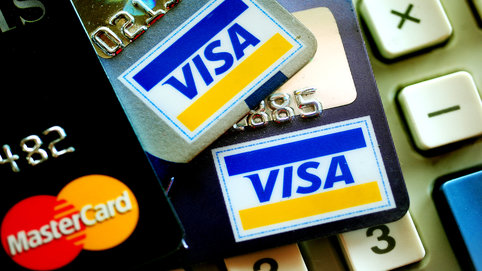Unlocking the credit market

It’s a sobering reality that over 3 billion people worldwide are cut off from access to mainstream credit - with as many as 9 million here in the UK.
Equally staggering in 2015, is the body of research pointing to gender disparity among those denied fair financial opportunity - with women far more likely to struggle.
Without a firm financial bedrock or credit history, any person faces similar exclusion - typically paying a so-called ‘poverty premium’ of £1,300 each year for the pleasure by being forced into the high-cost loan market. But a new smartphone app from a London Business School Sloan Masters student could be about to change this.
FinTech entrepreneur Norah Prida Bay, landed a place in the top 20 in Citi Bank’s Mobile Challenge with a new informal savings group app which will launch in the UK later this month.
Kitty10 is a first-of-its-kind innovation. As an easily downloadable mobile app, it facilitates and enhances interest-free savings groups through modern and secure smartphone technology.
It provides an ideal solution for those who need capital - potentially to finance a small business - without the threat of high rates and loan sharks looking over their shoulders.
Closed credit paths
Norah’s breakthrough is a significant one.
An increasing amount of people struggle to source funds on their own - whether it be due to irregular working hours, freelance contracts or not being on a company payroll.
It is the aim of the Financial Inclusion Commission that by 2020 every adult in the UK will have access when necessary to affordable credit from responsible lenders.
But in the current lack of a set, national financial inclusion strategy it is down to the innovators of the future to offer sensible solutions for those otherwise unable to join in.
In emerging markets, alternative schemes are already commonplace, and an increasing array of social platforms are enabling individuals or fledgling enterprises to bypass formal banking when borrowing, lending, raising or investing.
Finding alternative routes
Informal savings groups between individuals are not a new idea in theory - interest-free rotating savings and credit associations (ROSCAs) have been around for centuries - but the number of people beginning to capitalise on their collective benefits is expanding.
These initiatives are known to make it easier for people to save; put simply, you can’t waste your money on frivolous purchases when someone else is using it.
Up to 1.5 billion people worldwide use kitty systems to fulfil a diverse range of objectives.
But there are several inefficiencies involved in traditional formats - not least the fact that thousands of non-bank-insured accounts are liable to untrustworthy, ‘defective’ partners, who cut loose once their stake has been claimed.
Furthermore, members have to meet every period causing complications over distance, while cash payments, manual bookkeeping and the potential for calculation errors add to an underlining lack of transparency.
Kitty10
Kitty10 has been expertly engineered to eliminate these issues.
In a similar way to what we know as chit funds, friends are able to contribute an equal, agreed amount into a common pot - a kitty - each month.
Each month one member of the group claims the full kitty - at a 0% interest rate - before the process begins again, until each saver has had their turn at reaping the collective funds.
Built based on real feedback from real people, Norah’s innovation is the first to digitalise a simple, ethical and free way of saving with friends - targeting a proportion of those 9 million for whom short-term or payday loans are a painful reality.
Already partnered with Citi Bank, the real beauty of Kitty10 is that as regular savings payments are tracked, users can build a credit history through it, offering an invaluable route to wider financial credibility otherwise be so difficult to access.
Looking long term, Norah also says that within 10 years the app will allow users to open up a bank account from their mobile.
With both savings groups and mobile phone technology such successful, beneficial models, combining the two in this way creates endless possibilities. Adding mobile technology to the traditional model doesn’t compromise the initial trust foundation, but rather improves it.




